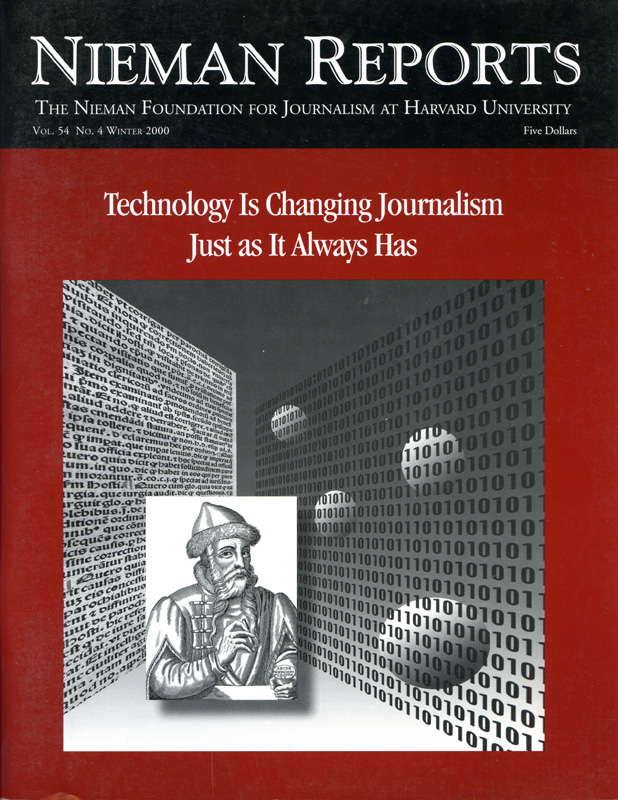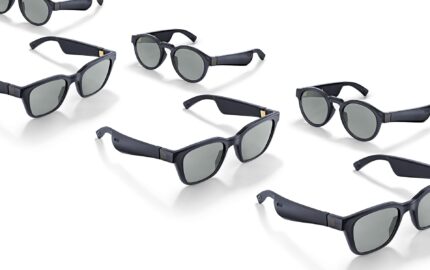More than a year after The Miami Herald added the individual e-mail addresses of its reporters to their bylines, the verdict is decidedly mixed on whether e-mail contact with the public is useful or disruptive.
There are the testimonials: Investigative reporter Manny Garcia calls email “invaluable,” and cites a number of tips that helped him flesh out stories on government corruption. So does Joe Tanfani, also a member of the Iteam, who says many useful follow-up ideas come in after one of his stories is published. Reporter Luisa Yanez is another enthusiast: “On several occasions, I’ve gotten an e-mail that has helped me follow a big story. I did a story on a state senator’s funny business and someone e-mailed me more examples of his shenanigans. And I did a story on an embalmer and someone who was suing him e-mailed me as well.”
But even the fans acknowledge that the useful tip is the exception. The bulk of e-mails tend toward the opinionated, not the factual, and a depressingly high number of those are personal attacks on the reporter—attacks that in former times might have been directed to the editor, if the reader even wanted to have his opinion known. Now, with the ease of e-mail, not only can anyone’s least-thought-out view be expressed instantaneously, but with the relative anonymity of the Internet it can be done in the most scurrilous language possible.
That’s something any editor should know before deciding to invite direct e-mail communication with reporters. Your reporters are going to find that much, if not most, of what they receive lacks civility, let alone utility. And it will all require time to answer, or even to ignore. “It was a rescue. Not a raid. Moron,” read one reader’s e-mail to reporter Carol Rosenberg in response to a story she wrote about the Immigration and Naturalization Service’s action taking Elian Gonzalez from the home of his Miami relatives and reuniting him with his father.
The final word captures the tone of much of the electronic correspondence Rosenberg received during the Elian controversy, so much so that she developed a program that automatically responded to such e-mails by suggesting the sender append his name and address and send the message to the editorial page for publication. Few, if any, did.
I can hear some saying, So what? Reporters are, or should be, a tough lot. Sticks and stones may break your bones but words will never hurt you. Some would even argue that it is good for reporters to know what readers think of their work. I’ll admit some sympathy for that position.
But the daily exposure to electronic insults, screeds that unfortunately they can’t avoid because they pop up on the screen as soon as the reporter signs on, in fact takes a toll. I have seen otherwise good reporters begin shying away from critical stories because of the angry e-mail they’ve received. No one, not even a reporter, enjoys being assaulted verbally, and e-mail assaults not only are inescapable—you can’t hang up on the insulting e-mailer—but they are encouraged by your employer.
There’s another downside to soliciting e-mail comments direct to reporters: the amount of time required to deal with them. That’s what troubles reporter Frances Robles, who received her share of lowbrow commentary during the Elian Gonzalez case. One example: After she wrote a piece on demonstrators outside the Cuban Interests Section in Washington, an emailer sent this: “The burning question, however, for me is: do the non-Miami Cubans also all have fat asses?”
“The vast majority of people who take the time to write are people with strong, strong, strong opinions,” Robles notes. “If you respond with insight, it triggers a letter-writing volley that nobody has time for. It you write back something very short, people are offended. One reader whose e-mail I ignored sent me a snippy note months later asking: Why do you bother putting your e-mail in the paper if you’re not going to write back? I had to admit: She had a good point.”
But how much time should a reporter spend each day dealing with email? Alfonso Chardy, who wrote most of the stories that won the Herald a Pulitzer Prize for the Iran-contra scandal back in the pre-e-mail era, guesses he gets between 15 and 20 e-mails a day. The problem is not the content—most are innocuous—but the hour or so he spends opening them, figuring out what if any response he needs to send, and then disposing of them. He sighs, “It’s just like getting an additional 20 phone calls a day. There’s nothing wrong with it. But it just adds to your work.”
The key, of course, is whether the work is worth it. There’s no denying that e-mail is a useful tool. I routinely beg PR people to get rid of their fax machines and send their releases by email. For reporters, e-mail can provide access to sources who otherwise might be inaccessible—our political reporter regularly exchanges e-mails with the governor, who otherwise would be unavailable for phone calls.
But as for unsolicited e-mails? Well, most reporters would find it more useful to spend an extra hour on the street.
Mark Seibel is assistant managing editor at The Miami Herald and a 1992 Nieman Fellow.
There are the testimonials: Investigative reporter Manny Garcia calls email “invaluable,” and cites a number of tips that helped him flesh out stories on government corruption. So does Joe Tanfani, also a member of the Iteam, who says many useful follow-up ideas come in after one of his stories is published. Reporter Luisa Yanez is another enthusiast: “On several occasions, I’ve gotten an e-mail that has helped me follow a big story. I did a story on a state senator’s funny business and someone e-mailed me more examples of his shenanigans. And I did a story on an embalmer and someone who was suing him e-mailed me as well.”
But even the fans acknowledge that the useful tip is the exception. The bulk of e-mails tend toward the opinionated, not the factual, and a depressingly high number of those are personal attacks on the reporter—attacks that in former times might have been directed to the editor, if the reader even wanted to have his opinion known. Now, with the ease of e-mail, not only can anyone’s least-thought-out view be expressed instantaneously, but with the relative anonymity of the Internet it can be done in the most scurrilous language possible.
That’s something any editor should know before deciding to invite direct e-mail communication with reporters. Your reporters are going to find that much, if not most, of what they receive lacks civility, let alone utility. And it will all require time to answer, or even to ignore. “It was a rescue. Not a raid. Moron,” read one reader’s e-mail to reporter Carol Rosenberg in response to a story she wrote about the Immigration and Naturalization Service’s action taking Elian Gonzalez from the home of his Miami relatives and reuniting him with his father.
The final word captures the tone of much of the electronic correspondence Rosenberg received during the Elian controversy, so much so that she developed a program that automatically responded to such e-mails by suggesting the sender append his name and address and send the message to the editorial page for publication. Few, if any, did.
I can hear some saying, So what? Reporters are, or should be, a tough lot. Sticks and stones may break your bones but words will never hurt you. Some would even argue that it is good for reporters to know what readers think of their work. I’ll admit some sympathy for that position.
But the daily exposure to electronic insults, screeds that unfortunately they can’t avoid because they pop up on the screen as soon as the reporter signs on, in fact takes a toll. I have seen otherwise good reporters begin shying away from critical stories because of the angry e-mail they’ve received. No one, not even a reporter, enjoys being assaulted verbally, and e-mail assaults not only are inescapable—you can’t hang up on the insulting e-mailer—but they are encouraged by your employer.
There’s another downside to soliciting e-mail comments direct to reporters: the amount of time required to deal with them. That’s what troubles reporter Frances Robles, who received her share of lowbrow commentary during the Elian Gonzalez case. One example: After she wrote a piece on demonstrators outside the Cuban Interests Section in Washington, an emailer sent this: “The burning question, however, for me is: do the non-Miami Cubans also all have fat asses?”
“The vast majority of people who take the time to write are people with strong, strong, strong opinions,” Robles notes. “If you respond with insight, it triggers a letter-writing volley that nobody has time for. It you write back something very short, people are offended. One reader whose e-mail I ignored sent me a snippy note months later asking: Why do you bother putting your e-mail in the paper if you’re not going to write back? I had to admit: She had a good point.”
But how much time should a reporter spend each day dealing with email? Alfonso Chardy, who wrote most of the stories that won the Herald a Pulitzer Prize for the Iran-contra scandal back in the pre-e-mail era, guesses he gets between 15 and 20 e-mails a day. The problem is not the content—most are innocuous—but the hour or so he spends opening them, figuring out what if any response he needs to send, and then disposing of them. He sighs, “It’s just like getting an additional 20 phone calls a day. There’s nothing wrong with it. But it just adds to your work.”
The key, of course, is whether the work is worth it. There’s no denying that e-mail is a useful tool. I routinely beg PR people to get rid of their fax machines and send their releases by email. For reporters, e-mail can provide access to sources who otherwise might be inaccessible—our political reporter regularly exchanges e-mails with the governor, who otherwise would be unavailable for phone calls.
But as for unsolicited e-mails? Well, most reporters would find it more useful to spend an extra hour on the street.
Mark Seibel is assistant managing editor at The Miami Herald and a 1992 Nieman Fellow.



